When Matthew Mirro received an electronic drum set for Christmas in 1985, he had visions of creating a song for a movie in the vein of Axl F. from Beverly Hills cop. When the instrument proved to not be his thing, it was no surprise when his younger brother picked up the sticks and ran with them. “Mikey was just born with it inside him”, Matt says. “He was a natural.”
One of Mikey Mirro’s dreams was to compose soundtracks. Anything to do with creating music, it seems, was the underlying force throughout his life. As teenagers the two became obsessed with movies, more specifically the soundtracks. “We filmed our own versions of Braveheart and Gladiator, among others. Then we would add music.”
.jpg) Over the next eighteen years, Mike Mirro mastered the art of percussion, playing in a variety of bands throughout high school and beyond. The most successful of which being Umphrey’s McGee, which he co-founded while studying at the University of Notre Dame. Another founding member, bassist Ryan Stasik recalls his first encounter with Mirro. “I was immediately drawn to him because he was fearless. There was nothing musically that intimidated him, he would try anything.” The two became fast friends, “We were inseparable, lived together, studied together and jammed together. Those were truly the best years, you know, we were discovering ourselves.”
Over the next eighteen years, Mike Mirro mastered the art of percussion, playing in a variety of bands throughout high school and beyond. The most successful of which being Umphrey’s McGee, which he co-founded while studying at the University of Notre Dame. Another founding member, bassist Ryan Stasik recalls his first encounter with Mirro. “I was immediately drawn to him because he was fearless. There was nothing musically that intimidated him, he would try anything.” The two became fast friends, “We were inseparable, lived together, studied together and jammed together. Those were truly the best years, you know, we were discovering ourselves.”
Mirro and keyboard player Joel Cummins had been playing together for some time and guitarist Brendan Bayliss was already teamed up with Stasik. All four felt their current bands were headed in the wrong direction. They formed a quartet and focused on writing their own material. Mikey’s High school friend, percussionist Andy Farag joined the mix and they began to play a blend of originals and covers around the Midwest. Stasik says, “We were chasing the dream”
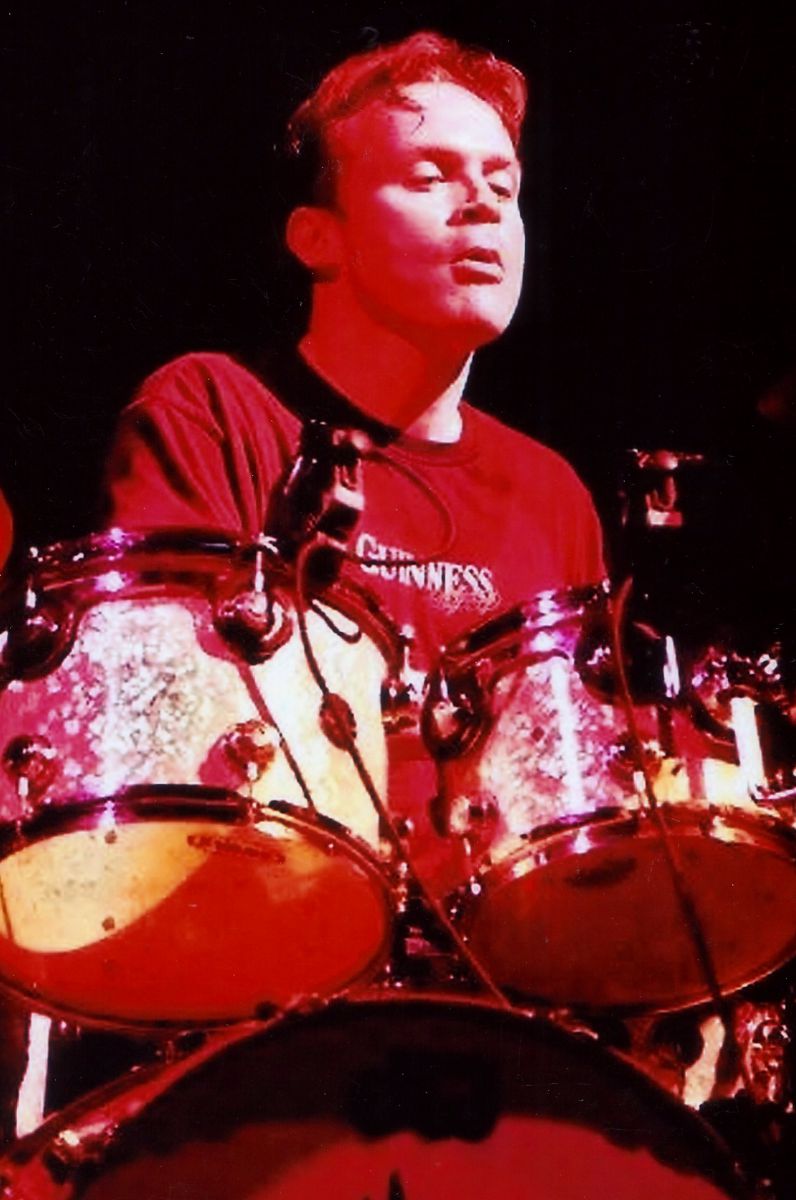 “Mikey was all in during the formative years. (98’ – 02’) He paid his dues in full, riding around the countryside in a van, setting up his drum set night after night. He was a pistol, you know, a real firecracker.” He was a serious prankster, always cracking jokes and keeping things light hearted. Stasik continues, “Mirro was my wingman…we were like Goose and Maverick. Man, I miss his laugh.”
“Mikey was all in during the formative years. (98’ – 02’) He paid his dues in full, riding around the countryside in a van, setting up his drum set night after night. He was a pistol, you know, a real firecracker.” He was a serious prankster, always cracking jokes and keeping things light hearted. Stasik continues, “Mirro was my wingman…we were like Goose and Maverick. Man, I miss his laugh.”
After graduating from Notre Dame in 2000, the band recognized that if they wanted to make it, they would have to move to Chicago. That’s when they invited local guitarist Jacob Cinninger to come along. “I was a drummer first, since I was nine years old. Mikey had a schooled background and his (drum) rolls were impeccable. My band at the time, Ali Baba’s Tahini had opened for Umphrey’s at St. Patrick’s Park in South Bend. I would just watch him play in amazement. He was so playful and positive, no negativity, it was really inviting. He had so much in his bag of tricks that I knew I wanted to be a part of it, so I threw all my chips in the UM basket.”
The band rented a house on Henderson St. in Wrigleyville and began to practice nonstop. Building their network and gaining popularity in small clubs around the city. Matt recalls spending a month on the couch. “I would come home in a shirt and tie and heads would turn! It was a great time to be watching and listening to the guys as they developed their sound. When they were on the road, my brother would call me every day to share stories and reminisce about our plans. He was really happy for a while.”
.jpg) But Mikey was a restless spirit, and although music always came first, he had more to accomplish. In 2002 he announced he would be leaving the band to become a doctor. He came from a family tradition steeped in the medical field. His father and uncle are both prominent in their respective fields and he was feeling a sense of obligation to follow in their footsteps. Matt is quick to clarify; “The only pressure from my family is to pursue something to the best of your ability, whatever it might be.”
But Mikey was a restless spirit, and although music always came first, he had more to accomplish. In 2002 he announced he would be leaving the band to become a doctor. He came from a family tradition steeped in the medical field. His father and uncle are both prominent in their respective fields and he was feeling a sense of obligation to follow in their footsteps. Matt is quick to clarify; “The only pressure from my family is to pursue something to the best of your ability, whatever it might be.”
After completing pre-med at Loyola University, Mikey enrolled at U.I.C., though he never broke free of his musical roots, taking alternating semesters off to play and record with the John Wasem Band and Mike Mirro and Friends. Mirro and friends had a rotating line up and spent most of their time in the studio. In 2005 he also recorded an album and toured with Marcus Rezak under the name Kobe Kai Jo. With the constant temptation of jamming in these different projects, he applied and was accepted to St. George University in England in 2008.
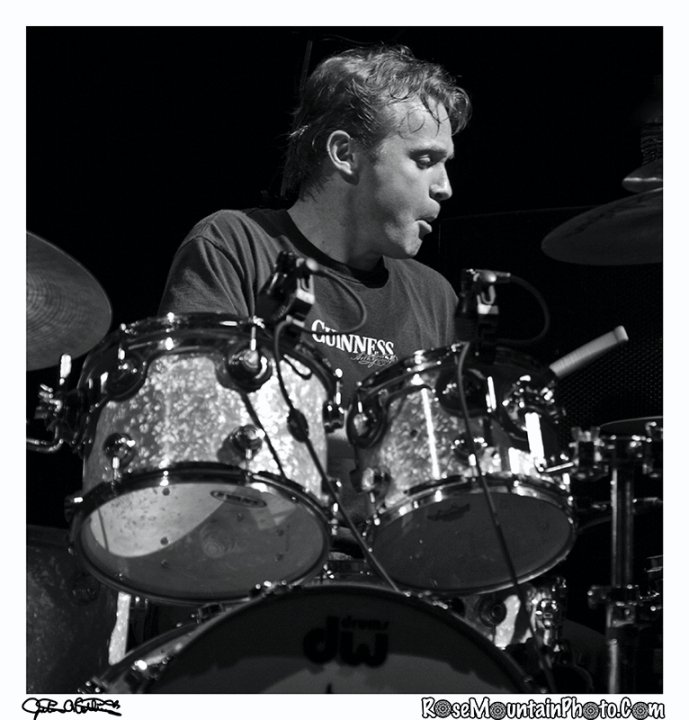 He appeared to be on track to acquire his degree when things got derailed after an altercation in a London Pub. He and some friends were having fun singing karaoke. Mikey was doing his best Bono impersonation and the locals took offense. They attacked Mirro and his friends and Mikey got the worst of it. As he was recovering a few weeks later, the same guys pulled him from a taxi and roughed him up. Alone and bewildered, he became reclusive. Unable to gain support from local police, his studies suffered. “Mike immediately began showing signs of mania, insomnia, and paranoia followed by bouts of depression. At the time, we knew nothing about bi-polar disorder”, His brother concedes, “We just knew he wasn’t the same.”
He appeared to be on track to acquire his degree when things got derailed after an altercation in a London Pub. He and some friends were having fun singing karaoke. Mikey was doing his best Bono impersonation and the locals took offense. They attacked Mirro and his friends and Mikey got the worst of it. As he was recovering a few weeks later, the same guys pulled him from a taxi and roughed him up. Alone and bewildered, he became reclusive. Unable to gain support from local police, his studies suffered. “Mike immediately began showing signs of mania, insomnia, and paranoia followed by bouts of depression. At the time, we knew nothing about bi-polar disorder”, His brother concedes, “We just knew he wasn’t the same.”
Shortly thereafter, he returned to America and immersed himself in what he knew best, composing and playing music. In 2010 he formed Marrow Sonic and recorded an album at Desert Rock. Plans for a tour fell through as band members went their own way. As always, he moved on to the next stage. In 2013 he co-founded Pneumatic Transit with Jeff Zampillo. They recorded an album featuring cellist Mike Ferraro and other top notch musicians which will be released later in 2015. Visit www.marrowsonic.com to hear samples of their work.
Throughout this entire process, Mikey wrote and recorded numerous film scores and in 2013 he enrolled at Columbia College in Chicago to pursue his dream of music composition. “My brother would call me regularly and say ‘I have this great idea. I have twelve songs recorded…but the world just isn’t ready to hear them yet…’
In the years following his time in London, Mikey would occasionally sit in with his friends in Umphrey’s McGee. You might think, in light of the way things turned out, he may have second guessed his decision the leave the band. If he did, he never showed any sign. He was the catalyst behind the music, regardless of who was playing. Like a rocket booster, Mirro would propel everyone around him to their next level and then drift on to the next idea. It seems that process brought him great joy. It must have, because everyone I have spoken to recalls the same effect.
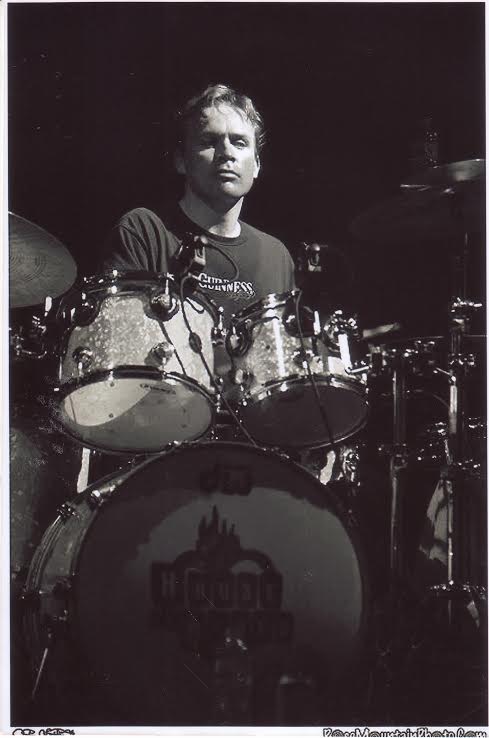 Since his passing, Mikey’s brother Matthew has tackled the painstaking task of compiling all of his recordings for release. “This material is just too good for fans not to hear” says Matt. Along with his father, he hired award winning producer, Paris Toon of Desert Rock Studio in Arizona to make this a reality. “This has been a tremendous undertaking”, says Toon. “There is an immense amount of material.” The highlight of which is a three part cello piece, which Mirro wrote in its entirety while at Columbia. That, along with a tribute song penned by Matthew which he recorded with Michael Ferraro and all other related materials will soon be available via Pandora, iTunes and a website dedicated to All Things Mirro.
Since his passing, Mikey’s brother Matthew has tackled the painstaking task of compiling all of his recordings for release. “This material is just too good for fans not to hear” says Matt. Along with his father, he hired award winning producer, Paris Toon of Desert Rock Studio in Arizona to make this a reality. “This has been a tremendous undertaking”, says Toon. “There is an immense amount of material.” The highlight of which is a three part cello piece, which Mirro wrote in its entirety while at Columbia. That, along with a tribute song penned by Matthew which he recorded with Michael Ferraro and all other related materials will soon be available via Pandora, iTunes and a website dedicated to All Things Mirro.
“Michael was that person who, as soon as you meet him you say to yourself, ‘I will never know another person like this”, Toon recalls in a brief conversation we shared. “He would arrive with his guys four hours late for studio time and when I inquired where he had been, he would laugh and say ‘In the pool, of course!’ You never knew what you would get, but you always knew it would be great.” Mirro would create new time signatures on the fly, off the wall stuff that totally held its own. “At the end of that session, Mike told me; ‘If anyone wants to use those beats, let them.”
Aside from the sheer size of his archives, Toon is most impressed by the unique approach and unwavering ambition Mirro possessed. “Michael came to the studio one day and immediately told me he wanted to do some piano tracks. He had nothing on paper, only in his mind and heart. We recorded half a dozen tracks or so, no click track, just straight melodies. Then he hopped behind the drum kit and played percussion without missing a beat. I had never seen an artist build a song in that manner, and never will again. It just does not happen that way.”
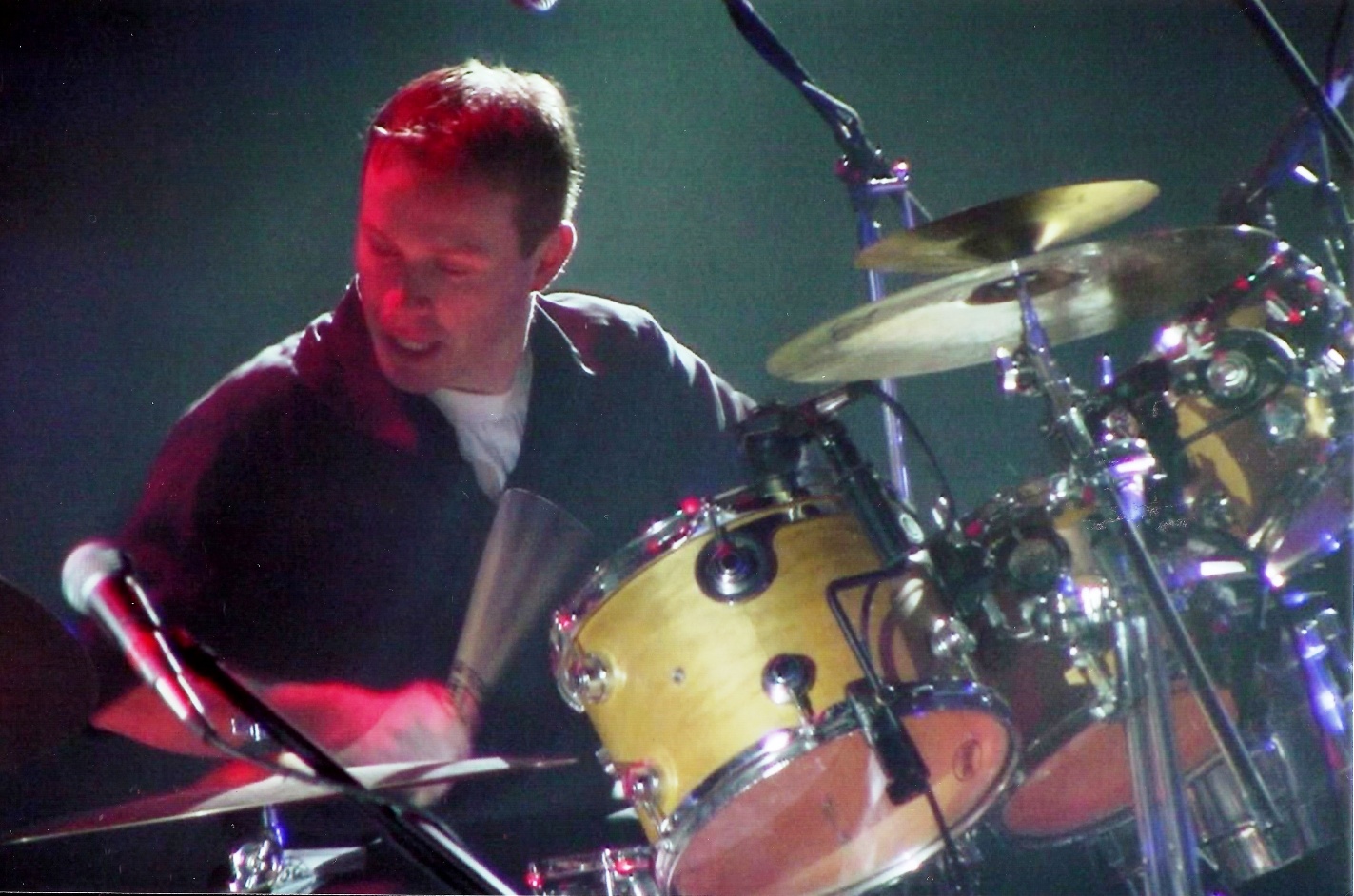 Marco Villarreal, fusion guitarist and Mirro collaborator for the Desert Rock sessions, says Mikey made a lasting impression from the start. “He drafted me to play in Arizona. We barely knew each other and we arrived at the studio without rehearsing any material. “ I suggest that Mirro lived his life the same way he played music, without a script. Marco laughs, “No question about it, he had such raw energy and we created everything in the moment. He was such a unique player, he had his own aroma. Mikey truly understood the Tempo of Life.”
Marco Villarreal, fusion guitarist and Mirro collaborator for the Desert Rock sessions, says Mikey made a lasting impression from the start. “He drafted me to play in Arizona. We barely knew each other and we arrived at the studio without rehearsing any material. “ I suggest that Mirro lived his life the same way he played music, without a script. Marco laughs, “No question about it, he had such raw energy and we created everything in the moment. He was such a unique player, he had his own aroma. Mikey truly understood the Tempo of Life.”
No one can say for sure when the first signs of bipolar disorder appeared, but all seem to agree it was after the London incident. Jake and Ryan do not recall anything in the early days, but over the last few years there were subtle signs. Jake observed “ebbs and flows” in Mikey’s behavior. “He seemed functionally stretched. Yet other times he was able to turn it off. He would increasingly find himself in hard luck situations.”
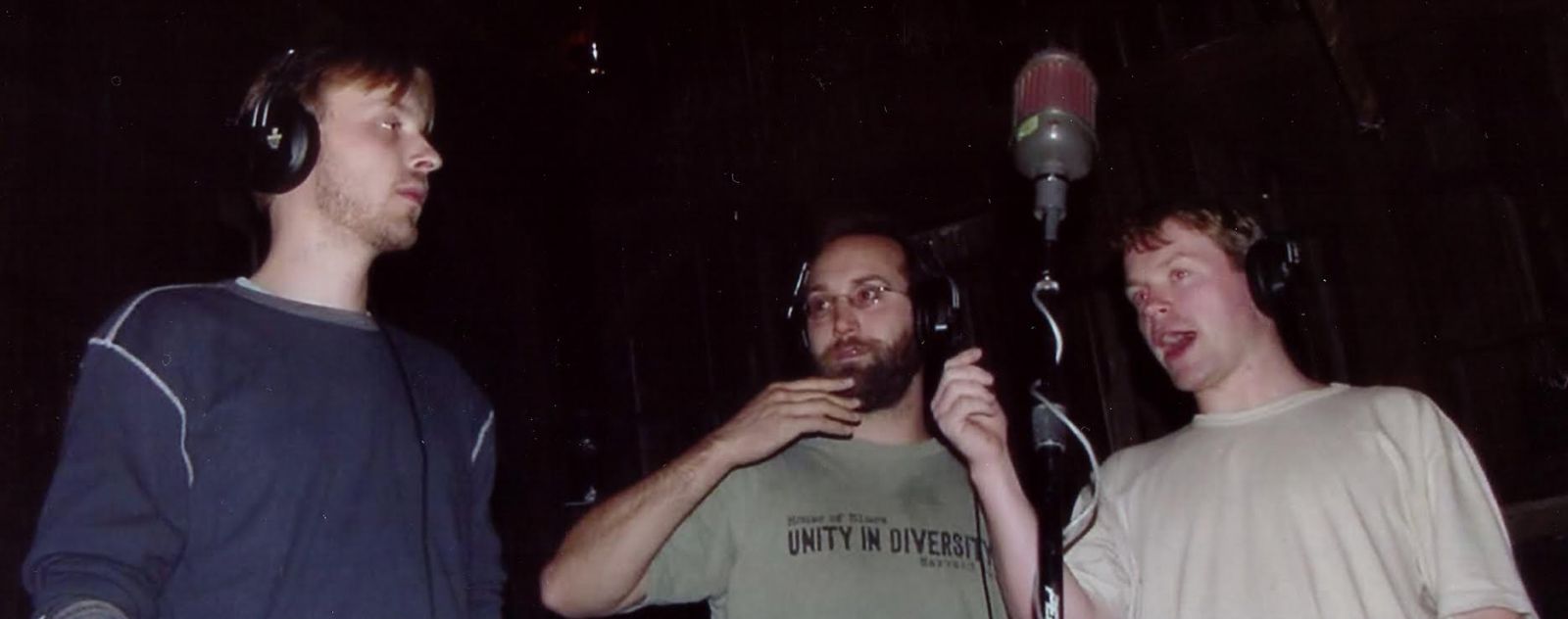 But was there some correlation between his state of mind and his insatiable drive to create? While there was no diagnosis back in their time, some experts believe that Beethoven and Picasso were affected by bipolar episodes. More recently and perhaps more obviously, Jimi Hendrix, Kurt Cobain, Ozzy Osbourne and Brian Wilson have all walked the fine line between genius and symptoms. This may have been an underlying issue all along, only truly coming to the surface after suffering a trauma, physical or emotional.
But was there some correlation between his state of mind and his insatiable drive to create? While there was no diagnosis back in their time, some experts believe that Beethoven and Picasso were affected by bipolar episodes. More recently and perhaps more obviously, Jimi Hendrix, Kurt Cobain, Ozzy Osbourne and Brian Wilson have all walked the fine line between genius and symptoms. This may have been an underlying issue all along, only truly coming to the surface after suffering a trauma, physical or emotional.
The fact is, we just don’t know. Misdiagnosis certainly is an ongoing obstacle, often resulting in self-medicating. It has been reported that it can take up to ten years to get the right combination of medication. That is simply unacceptable. Matthew’s uncle founded the Parkview Mirro Center for Research and Renovation. The Center has partnered with Indiana University and Duke University Centers for Transitional Research to put forth an honest effort to find the root of the cause and establish legitimate treatment programs. Their research is truly cutting edge. Mike’s father and uncle founded the Mikey Fund to help raise money and awareness for the cause. Please visit www.Parkview.com/TheMikeyFund to contribute.
In an effort to help jumpstart the project, members of Umphrey’s McGee and other Chicago based performers came together for the annual Brendan and Jake Holiday show at the Park West. The show sold out in less than a day, and the room was full of familiar faces. I arrived at the theater expecting a good show, but what I experienced was something far more special. On this night, there was no holding back the smiles or the tears.
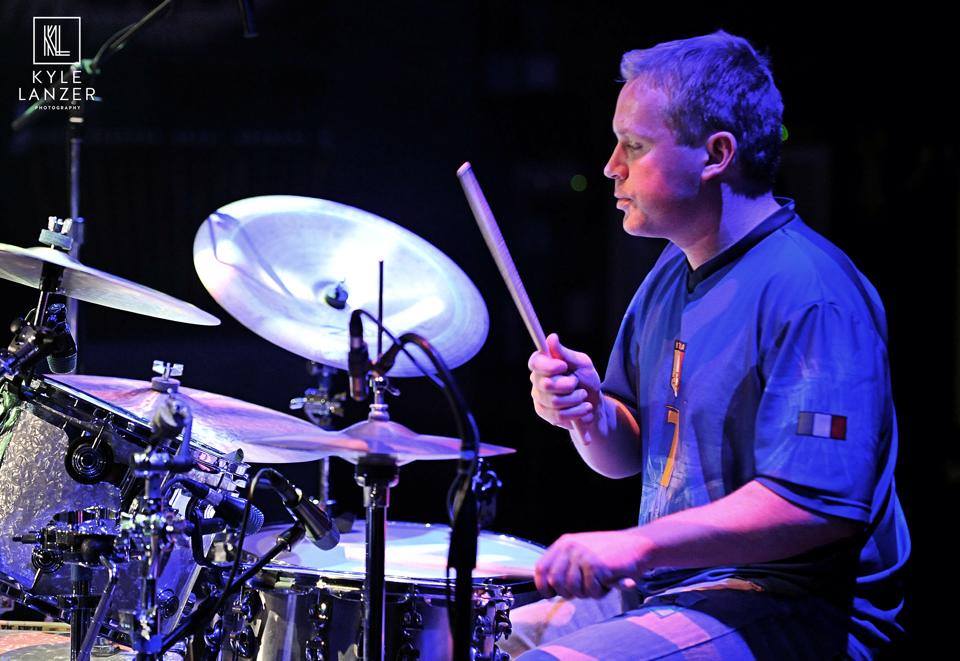 The set list was full of Mikey tunes, and each of his brothers, musical and biological, shared feelings and stories of time spent together over the years. Master of Ceremonies, Barry Brown had the honor of introducing the Mirro family during set break. Uncle Mike delivered some sobering news with a smile. He said “There are a thousand people here tonight; one hundred and thirty of you are bi polar. Your date just hasn’t told you yet.”
The set list was full of Mikey tunes, and each of his brothers, musical and biological, shared feelings and stories of time spent together over the years. Master of Ceremonies, Barry Brown had the honor of introducing the Mirro family during set break. Uncle Mike delivered some sobering news with a smile. He said “There are a thousand people here tonight; one hundred and thirty of you are bi polar. Your date just hasn’t told you yet.”
Matt shared personal stories to which we could all relate. He told us tales of laughter, adventure and the amazing experience of having your brother as your best friend. Throughout the night I heard a recurring notation. Each person who spoke of Mikey said the same thing at some point, “I would not be where I am today if I had not known Mike Mirro.” That stuck with me. As a fan, my first thought was that it must have something to do with his style of playing or writing. Now, after hearing things a bit more in depth, I understand what they actually meant was that Mike taught them all a true life lesson. “Never take yourself too seriously.”
After the show, I encountered Matt, surrounded by family and friends. I asked permission to take a photograph and he gladly obliged. We spoke for only a few minutes, yet I was so moved by his new found mission. “I won’t rest until my brother’s music is available for everyone to hear.”
Mental health is a very private issue. I believe we owe it to our friends and family to pay attention to details. Never assume that someone will ask for help. Chances are good that your loved one won’t recognize that there is an issue at all. The old saying “It’s never too late” does not apply when it comes to this scenario. The sooner treatment starts, the odds of rising above it all are greatly improved.
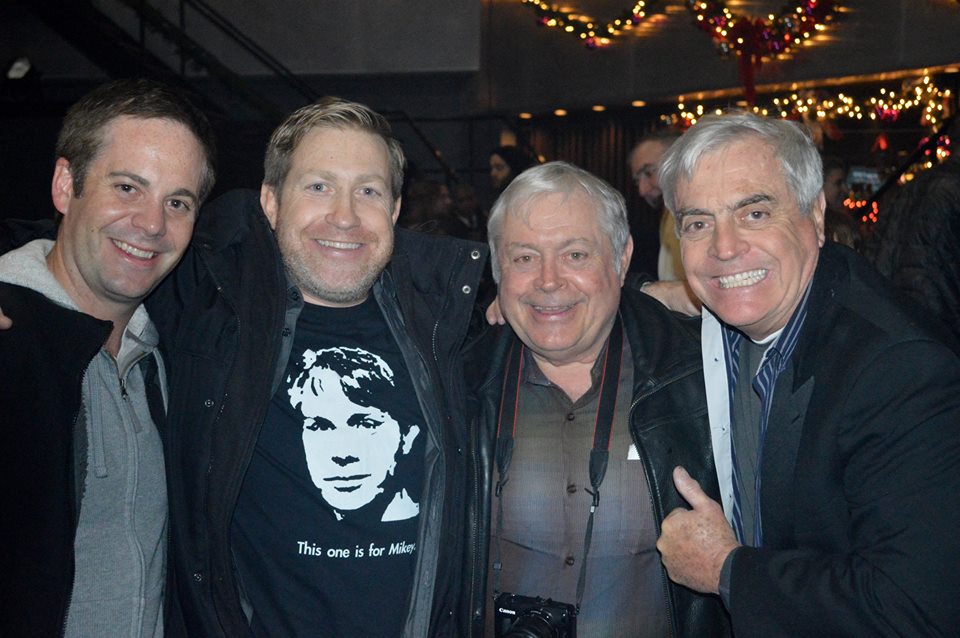 One important thing Matt told me really struck home. With a smile on his face and a tear in his eye he said, “I want people to remember Mikey as the artist that he is, not as the guy with bi-polar disorder”. Based on the love I have seen and the stories I have heard, he has nothing to worry about. Mikey impacted the lives of not only the people close to him, but of countless fans around the world. His legacy lives on every time Umphrey’s McGee takes the stage, and that legacy goes far beyond the symptoms.
One important thing Matt told me really struck home. With a smile on his face and a tear in his eye he said, “I want people to remember Mikey as the artist that he is, not as the guy with bi-polar disorder”. Based on the love I have seen and the stories I have heard, he has nothing to worry about. Mikey impacted the lives of not only the people close to him, but of countless fans around the world. His legacy lives on every time Umphrey’s McGee takes the stage, and that legacy goes far beyond the symptoms.
 I am fortunate enough to have been attending Umphrey’s shows since their very conception. I saw them live on their sixteenth show ever played in our hometown of South Bend, IN. Sixteen years and countless shows have afforded me some quality time with the band, but nothing like this cold November night in Michigan.
I am fortunate enough to have been attending Umphrey’s shows since their very conception. I saw them live on their sixteenth show ever played in our hometown of South Bend, IN. Sixteen years and countless shows have afforded me some quality time with the band, but nothing like this cold November night in Michigan.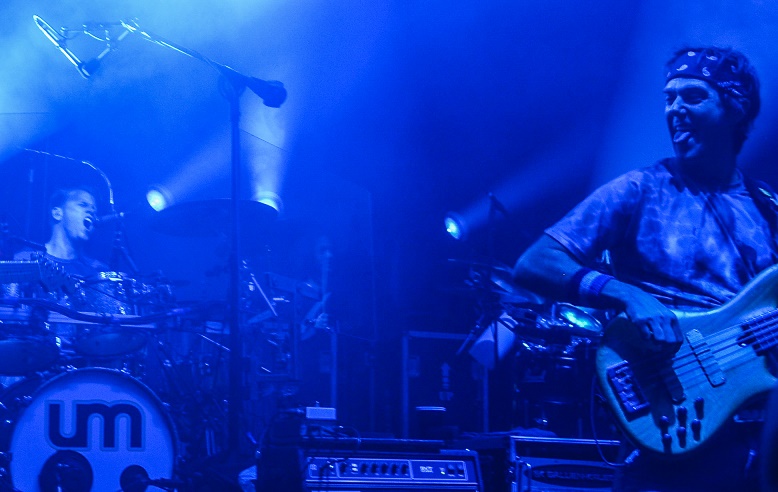 Once inside I showed Louie a little Booth Love and blazed a trail to the stage. New to the venue were rows of folding chairs in the pit area. Nothing too fancy, but they created a nice barrier to keep the Wooks at bay. After a brief negotiation with Sully, a sixty-three year old former bouncer at the Aragon Ballroom in Chicago, I had my two chairs exactly where I needed them. I shared my extra ear plugs with Bill the security guard and retired Air Force pilot and once I felt confident my spot was secure, I ventured out to find Sarah and grab a beer. Things were coming together nicely.
Once inside I showed Louie a little Booth Love and blazed a trail to the stage. New to the venue were rows of folding chairs in the pit area. Nothing too fancy, but they created a nice barrier to keep the Wooks at bay. After a brief negotiation with Sully, a sixty-three year old former bouncer at the Aragon Ballroom in Chicago, I had my two chairs exactly where I needed them. I shared my extra ear plugs with Bill the security guard and retired Air Force pilot and once I felt confident my spot was secure, I ventured out to find Sarah and grab a beer. Things were coming together nicely. As the lights went down and the music commenced, it was anyone’s guess which song was for Austin, everything played seemed to have a piece of the message. Was it the Jake penned number Little Gift or Sarah’s sentimental favorite No Diablo? A reference to childhood afternoons spent eating nachos for two and playing Nintendo with her brother. Ozzy Osborne’s No More Tears hit hard as well, but it was during keyboardist Joel Cummins’ delicate solo on piano that Jake came to the edge of the stage, took Sarah’s hand and said softly, this song is for you. They played Austin’s favorite, Hajimemashite. It is the first song written by bassist Ryan Stasik and singer/guitarist Brendan Bayliss and roughly translated means “Nice to meet you”. By the end, beers and tears were free flowing.
As the lights went down and the music commenced, it was anyone’s guess which song was for Austin, everything played seemed to have a piece of the message. Was it the Jake penned number Little Gift or Sarah’s sentimental favorite No Diablo? A reference to childhood afternoons spent eating nachos for two and playing Nintendo with her brother. Ozzy Osborne’s No More Tears hit hard as well, but it was during keyboardist Joel Cummins’ delicate solo on piano that Jake came to the edge of the stage, took Sarah’s hand and said softly, this song is for you. They played Austin’s favorite, Hajimemashite. It is the first song written by bassist Ryan Stasik and singer/guitarist Brendan Bayliss and roughly translated means “Nice to meet you”. By the end, beers and tears were free flowing.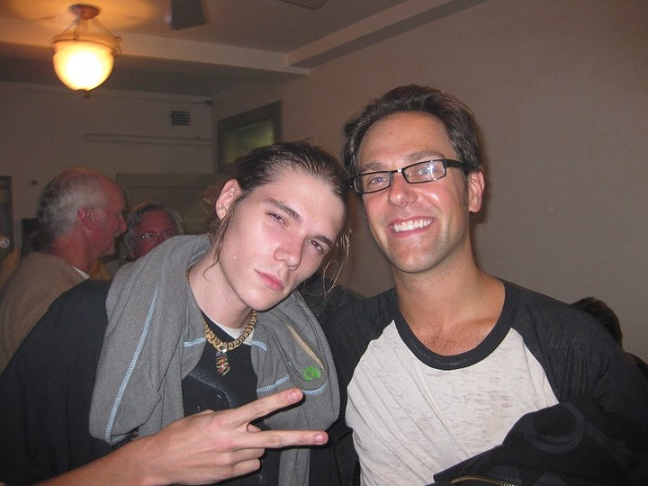 It took us a minute to compose ourselves, with emotions running in overdrive, I felt as though I could leave and be completely satisfied. But this rollercoaster was not stopping just yet.
It took us a minute to compose ourselves, with emotions running in overdrive, I felt as though I could leave and be completely satisfied. But this rollercoaster was not stopping just yet. Then again, that is the beauty of this magical, musical adventure. You get out what you put in, and if there is one thing I know about Austin, he gave his all. The rest of the set spoke for itself with Cemetary Walk 1 & 2 and Wizard Burial Ground, the writing was on the wall.
Then again, that is the beauty of this magical, musical adventure. You get out what you put in, and if there is one thing I know about Austin, he gave his all. The rest of the set spoke for itself with Cemetary Walk 1 & 2 and Wizard Burial Ground, the writing was on the wall.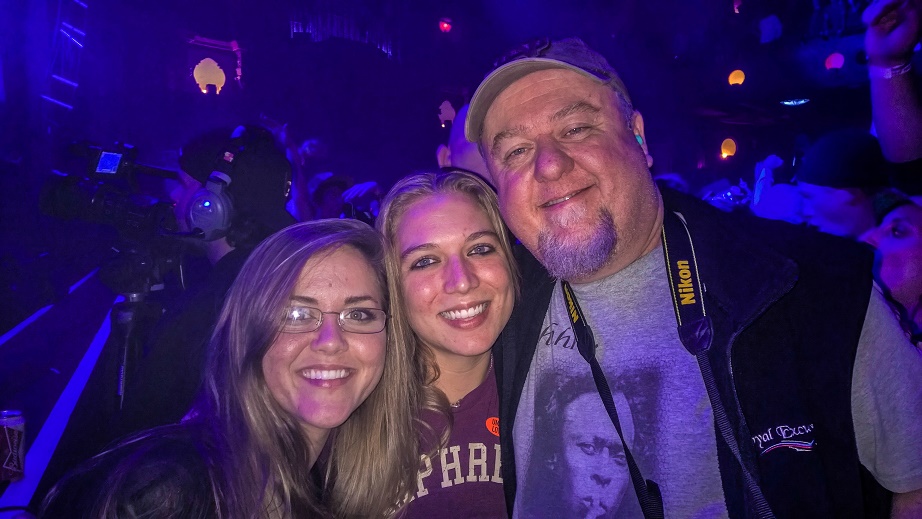 After the show, I had just a moment to speak to Bayliss downstairs. I thanked him sincerely for playing Haji and he expressed his condolences. He shrugged his shoulders and said to me simply, “What can you do?” I replied, ”You did your part Brendan, you helped us heal.”
After the show, I had just a moment to speak to Bayliss downstairs. I thanked him sincerely for playing Haji and he expressed his condolences. He shrugged his shoulders and said to me simply, “What can you do?” I replied, ”You did your part Brendan, you helped us heal.”





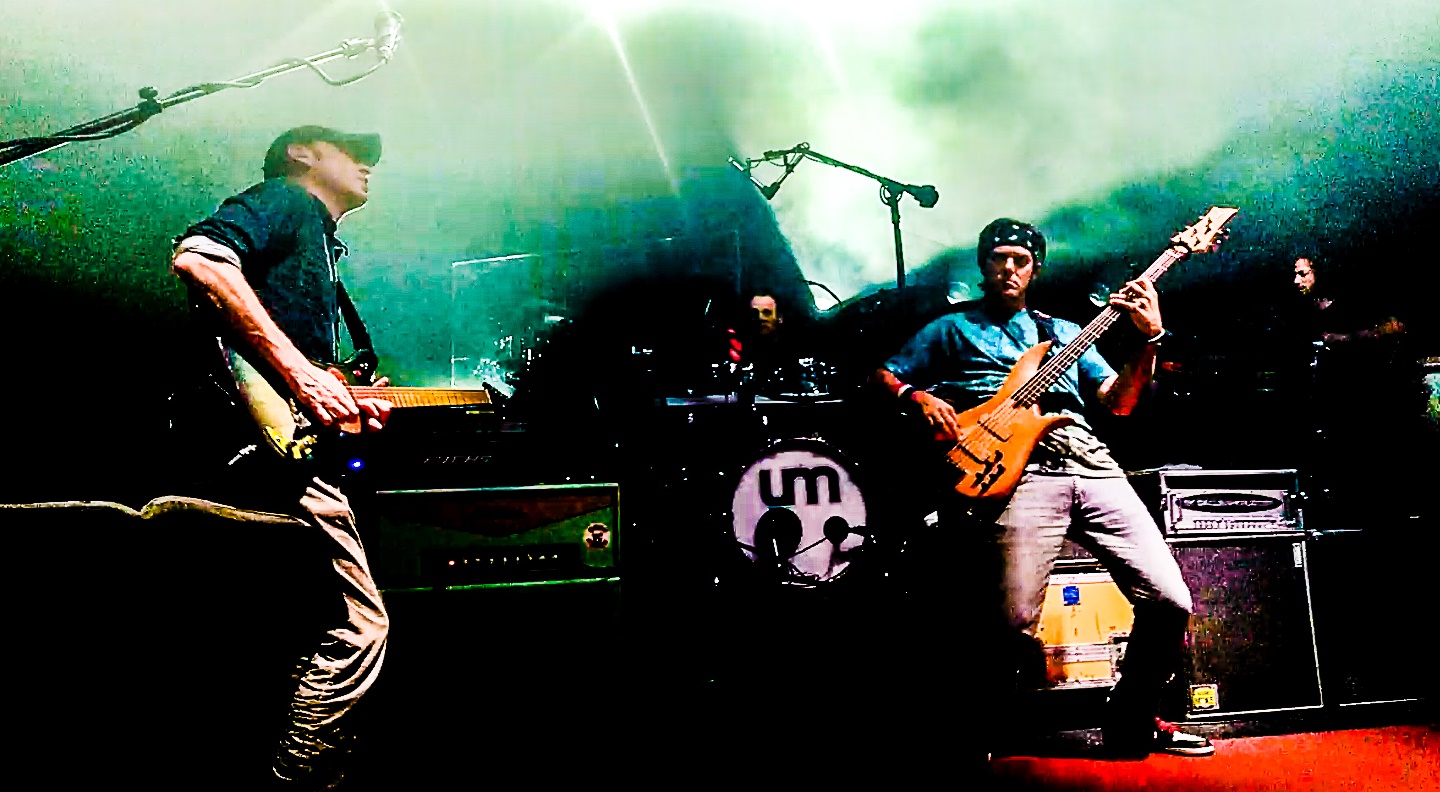

.jpg) Over the next eighteen years, Mike Mirro mastered the art of percussion, playing in a variety of bands throughout high school and beyond. The most successful of which being
Over the next eighteen years, Mike Mirro mastered the art of percussion, playing in a variety of bands throughout high school and beyond. The most successful of which being  “Mikey was all in during the formative years. (98’ – 02’) He paid his dues in full, riding around the countryside in a van, setting up his drum set night after night. He was a pistol, you know, a real firecracker.” He was a serious prankster, always cracking jokes and keeping things light hearted. Stasik continues, “Mirro was my wingman…we were like Goose and Maverick. Man, I miss his laugh.”
“Mikey was all in during the formative years. (98’ – 02’) He paid his dues in full, riding around the countryside in a van, setting up his drum set night after night. He was a pistol, you know, a real firecracker.” He was a serious prankster, always cracking jokes and keeping things light hearted. Stasik continues, “Mirro was my wingman…we were like Goose and Maverick. Man, I miss his laugh.”.jpg) But Mikey was a restless spirit, and although music always came first, he had more to accomplish. In 2002 he announced he would be leaving the band to become a doctor. He came from a family tradition steeped in the medical field. His father and uncle are both prominent in their respective fields and he was feeling a sense of obligation to follow in their footsteps. Matt is quick to clarify; “The only pressure from my family is to pursue something to the best of your ability, whatever it might be.”
But Mikey was a restless spirit, and although music always came first, he had more to accomplish. In 2002 he announced he would be leaving the band to become a doctor. He came from a family tradition steeped in the medical field. His father and uncle are both prominent in their respective fields and he was feeling a sense of obligation to follow in their footsteps. Matt is quick to clarify; “The only pressure from my family is to pursue something to the best of your ability, whatever it might be.” He appeared to be on track to acquire his degree when things got derailed after an altercation in a London Pub. He and some friends were having fun singing karaoke. Mikey was doing his best Bono impersonation and the locals took offense. They attacked Mirro and his friends and Mikey got the worst of it. As he was recovering a few weeks later, the same guys pulled him from a taxi and roughed him up. Alone and bewildered, he became reclusive. Unable to gain support from local police, his studies suffered. “Mike immediately began showing signs of mania, insomnia, and paranoia followed by bouts of depression. At the time, we knew nothing about bi-polar disorder”, His brother concedes, “We just knew he wasn’t the same.”
He appeared to be on track to acquire his degree when things got derailed after an altercation in a London Pub. He and some friends were having fun singing karaoke. Mikey was doing his best Bono impersonation and the locals took offense. They attacked Mirro and his friends and Mikey got the worst of it. As he was recovering a few weeks later, the same guys pulled him from a taxi and roughed him up. Alone and bewildered, he became reclusive. Unable to gain support from local police, his studies suffered. “Mike immediately began showing signs of mania, insomnia, and paranoia followed by bouts of depression. At the time, we knew nothing about bi-polar disorder”, His brother concedes, “We just knew he wasn’t the same.” Since his passing, Mikey’s brother Matthew has tackled the painstaking task of compiling all of his recordings for release. “This material is just too good for fans not to hear” says Matt. Along with his father, he hired award winning producer, Paris Toon of Desert Rock Studio in Arizona to make this a reality. “This has been a tremendous undertaking”, says Toon. “There is an immense amount of material.” The highlight of which is a three part cello piece, which Mirro wrote in its entirety while at Columbia. That, along with a tribute song penned by Matthew which he recorded with Michael Ferraro and all other related materials will soon be available via Pandora, iTunes and a website dedicated to All Things Mirro.
Since his passing, Mikey’s brother Matthew has tackled the painstaking task of compiling all of his recordings for release. “This material is just too good for fans not to hear” says Matt. Along with his father, he hired award winning producer, Paris Toon of Desert Rock Studio in Arizona to make this a reality. “This has been a tremendous undertaking”, says Toon. “There is an immense amount of material.” The highlight of which is a three part cello piece, which Mirro wrote in its entirety while at Columbia. That, along with a tribute song penned by Matthew which he recorded with Michael Ferraro and all other related materials will soon be available via Pandora, iTunes and a website dedicated to All Things Mirro. Marco Villarreal, fusion guitarist and Mirro collaborator for the Desert Rock sessions, says Mikey made a lasting impression from the start. “He drafted me to play in Arizona. We barely knew each other and we arrived at the studio without rehearsing any material. “ I suggest that Mirro lived his life the same way he played music, without a script. Marco laughs, “No question about it, he had such raw energy and we created everything in the moment. He was such a unique player, he had his own aroma. Mikey truly understood the Tempo of Life.”
Marco Villarreal, fusion guitarist and Mirro collaborator for the Desert Rock sessions, says Mikey made a lasting impression from the start. “He drafted me to play in Arizona. We barely knew each other and we arrived at the studio without rehearsing any material. “ I suggest that Mirro lived his life the same way he played music, without a script. Marco laughs, “No question about it, he had such raw energy and we created everything in the moment. He was such a unique player, he had his own aroma. Mikey truly understood the Tempo of Life.” But was there some correlation between his state of mind and his insatiable drive to create? While there was no diagnosis back in their time, some experts believe that Beethoven and Picasso were affected by bipolar episodes. More recently and perhaps more obviously, Jimi Hendrix, Kurt Cobain, Ozzy Osbourne and Brian Wilson have all walked the fine line between genius and symptoms. This may have been an underlying issue all along, only truly coming to the surface after suffering a trauma, physical or emotional.
But was there some correlation between his state of mind and his insatiable drive to create? While there was no diagnosis back in their time, some experts believe that Beethoven and Picasso were affected by bipolar episodes. More recently and perhaps more obviously, Jimi Hendrix, Kurt Cobain, Ozzy Osbourne and Brian Wilson have all walked the fine line between genius and symptoms. This may have been an underlying issue all along, only truly coming to the surface after suffering a trauma, physical or emotional. The set list was full of Mikey tunes, and each of his brothers, musical and biological, shared feelings and stories of time spent together over the years. Master of Ceremonies, Barry Brown had the honor of introducing the Mirro family during set break. Uncle Mike delivered some sobering news with a smile. He said “There are a thousand people here tonight; one hundred and thirty of you are bi polar. Your date just hasn’t told you yet.”
The set list was full of Mikey tunes, and each of his brothers, musical and biological, shared feelings and stories of time spent together over the years. Master of Ceremonies, Barry Brown had the honor of introducing the Mirro family during set break. Uncle Mike delivered some sobering news with a smile. He said “There are a thousand people here tonight; one hundred and thirty of you are bi polar. Your date just hasn’t told you yet.” One important thing Matt told me really struck home. With a smile on his face and a tear in his eye he said, “I want people to remember Mikey as the artist that he is, not as the guy with bi-polar disorder”. Based on the love I have seen and the stories I have heard, he has nothing to worry about. Mikey impacted the lives of not only the people close to him, but of countless fans around the world. His legacy lives on every time Umphrey’s McGee takes the stage, and that legacy goes far beyond the symptoms.
One important thing Matt told me really struck home. With a smile on his face and a tear in his eye he said, “I want people to remember Mikey as the artist that he is, not as the guy with bi-polar disorder”. Based on the love I have seen and the stories I have heard, he has nothing to worry about. Mikey impacted the lives of not only the people close to him, but of countless fans around the world. His legacy lives on every time Umphrey’s McGee takes the stage, and that legacy goes far beyond the symptoms.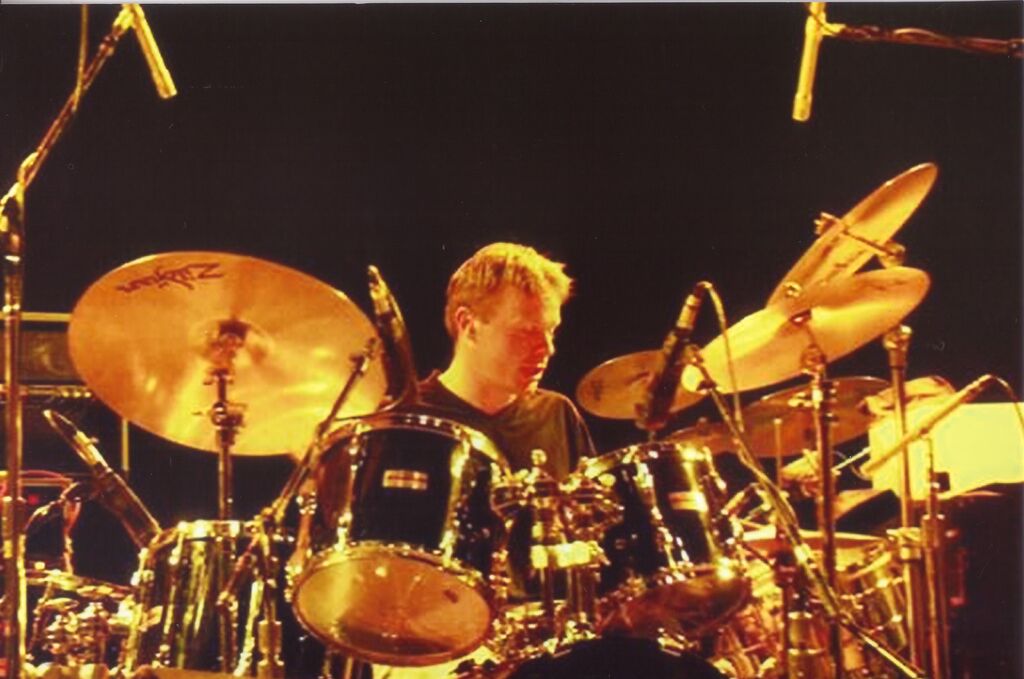
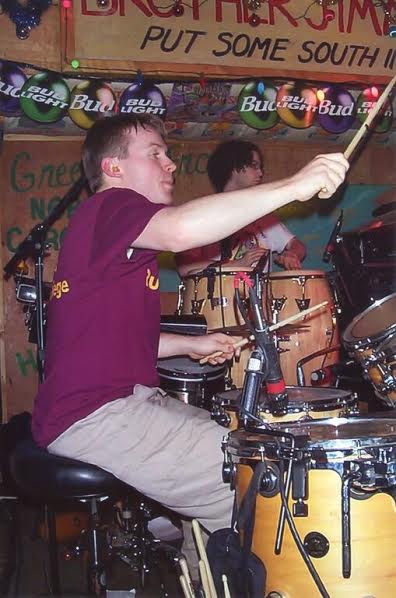 Like so many people who struggle to endure an affliction like bi-polar disorder, Michael had his share of ups and downs, periods of detachment and moments of clarity. As we know, he had a creative streak that ran the entirety of his life. He possessed an unwavering desire to transfer his emotions to a viable medium for others to consume. The question now is what can we do to carry on in his name, to keep his spirit alive?
Like so many people who struggle to endure an affliction like bi-polar disorder, Michael had his share of ups and downs, periods of detachment and moments of clarity. As we know, he had a creative streak that ran the entirety of his life. He possessed an unwavering desire to transfer his emotions to a viable medium for others to consume. The question now is what can we do to carry on in his name, to keep his spirit alive?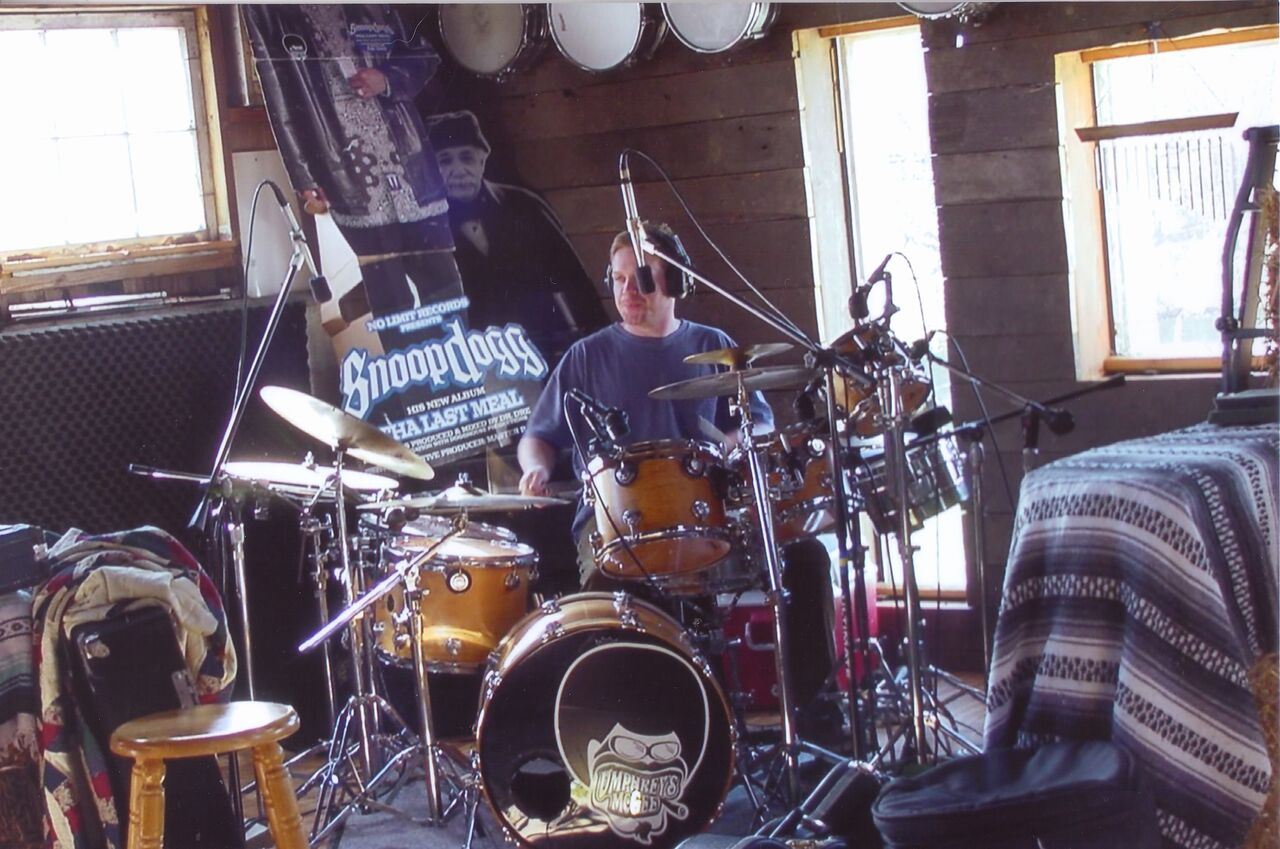 Dr. Mike Mirro, brother to Mike’s father, has established the
Dr. Mike Mirro, brother to Mike’s father, has established the 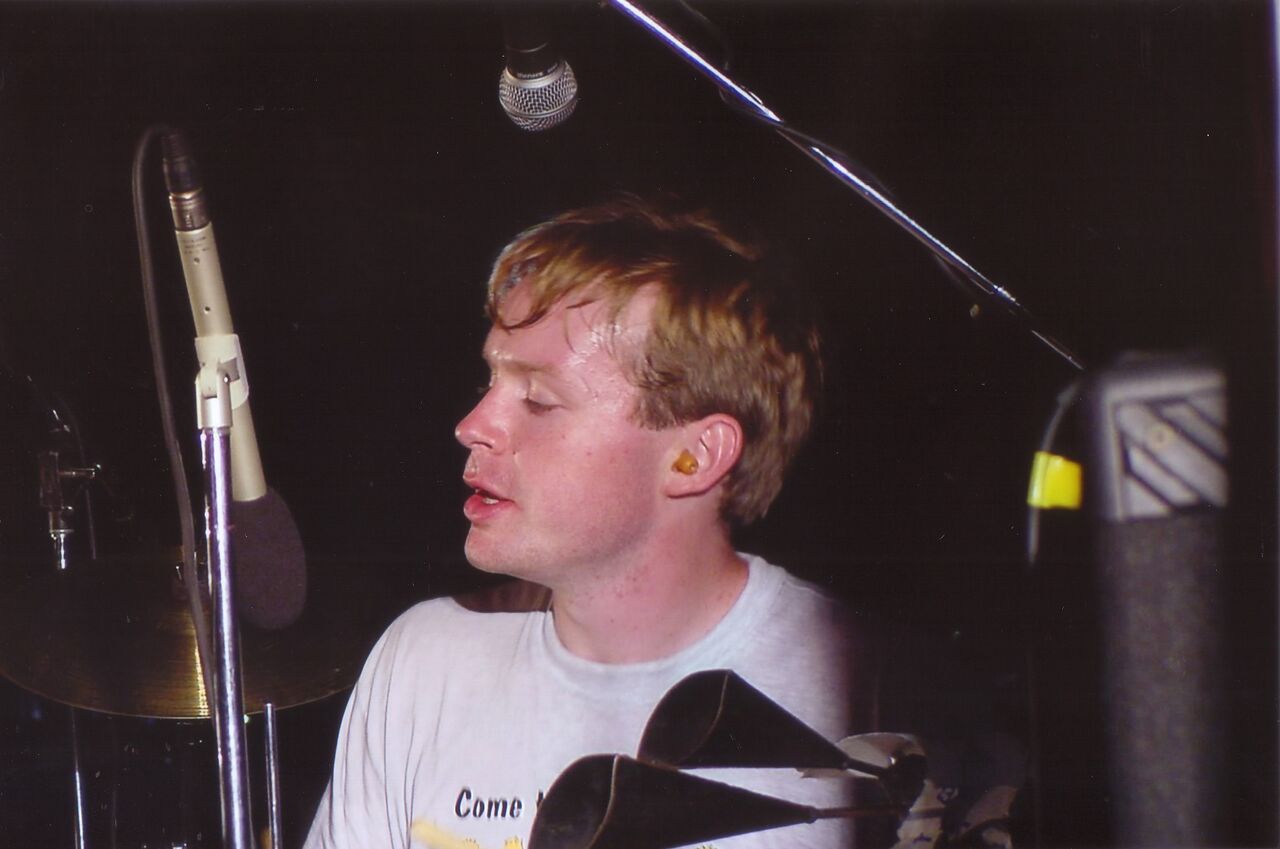 So what can be done to predict, or map out who is likely to develop these tendencies? “The technology exists today to find real answers, what we need to succeed is for more people to come forward. We need as many blood samples as we can get, anonymously, to collect the data needed.” Dr. Mike says, “We need to educate people so the stigma can be taken out of the equation, out of the way of progress.” He goes on to tell me that Indiana leads the nation in adolescent suicides. “The majority of those children were bi-polar.”
So what can be done to predict, or map out who is likely to develop these tendencies? “The technology exists today to find real answers, what we need to succeed is for more people to come forward. We need as many blood samples as we can get, anonymously, to collect the data needed.” Dr. Mike says, “We need to educate people so the stigma can be taken out of the equation, out of the way of progress.” He goes on to tell me that Indiana leads the nation in adolescent suicides. “The majority of those children were bi-polar.”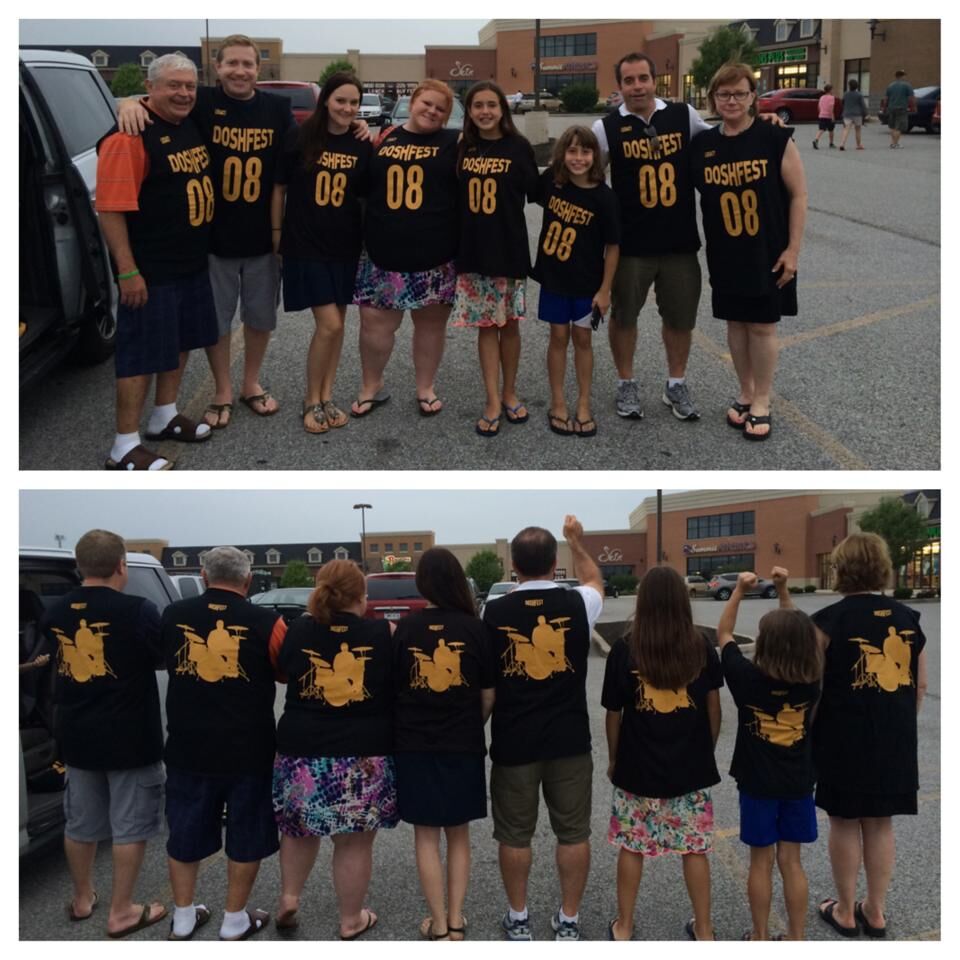 Another close friend, Tyler Lennox-Bush has spearheaded a Non Profit Arts Organization which produces films, events and performances in greater Northwest Indiana. Rustedblue teaches art infused with technology. “We create an environment that gives inner city children access to media arts training. We show them alternative paths to enrich their lives.” Tyler is currently doing research for an upcoming film project titled Region Rat. “I want to honor Mike by utilizing his music for the soundtrack. It’s what we always talked about doing together.”
Another close friend, Tyler Lennox-Bush has spearheaded a Non Profit Arts Organization which produces films, events and performances in greater Northwest Indiana. Rustedblue teaches art infused with technology. “We create an environment that gives inner city children access to media arts training. We show them alternative paths to enrich their lives.” Tyler is currently doing research for an upcoming film project titled Region Rat. “I want to honor Mike by utilizing his music for the soundtrack. It’s what we always talked about doing together.”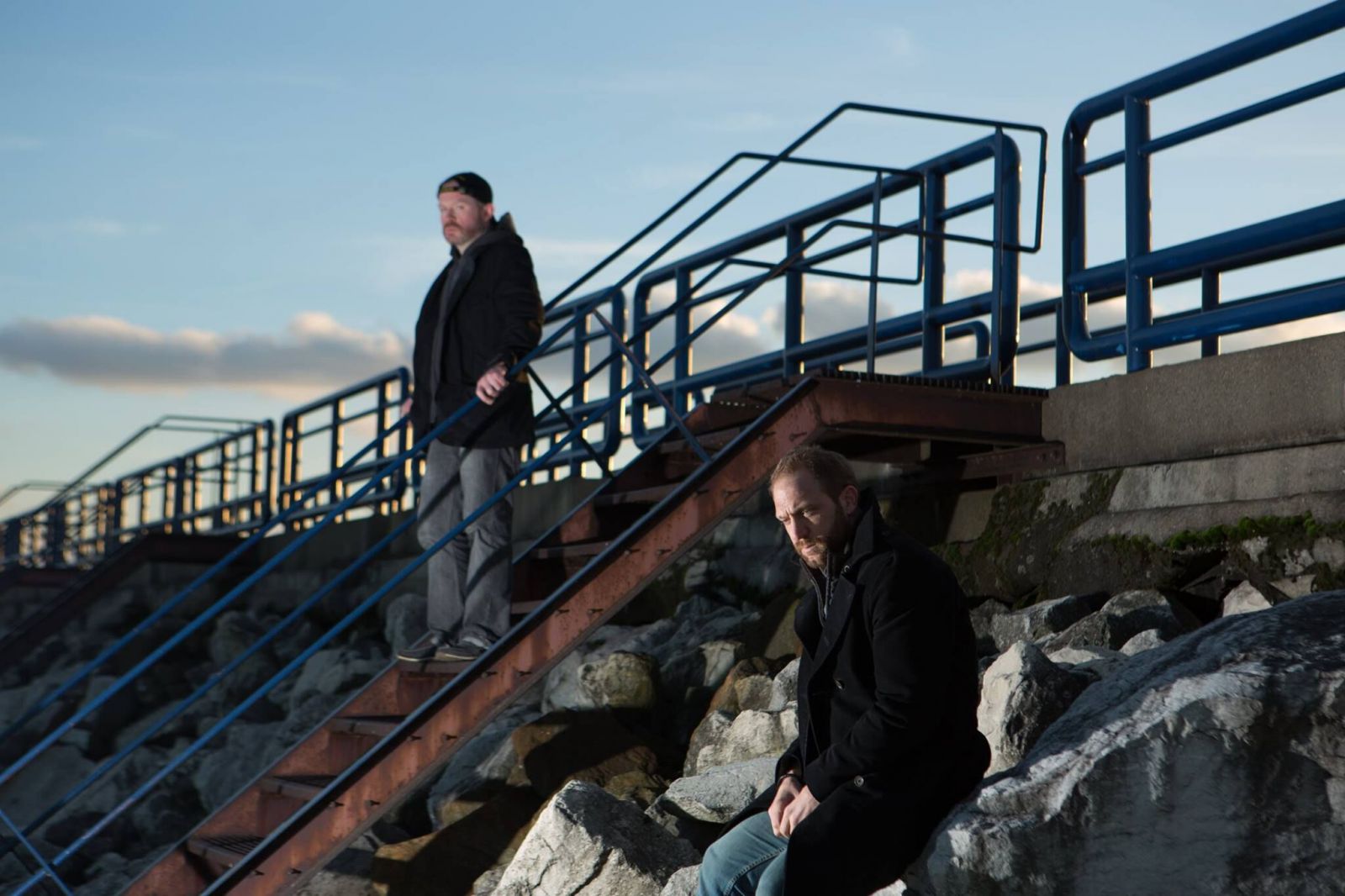 I recently met Adam Houin, former Indiana resident and quite possibly Mike Mirro’s biggest fan. “I was born at just the right time, I discovered Umphrey’s McGee when I was seventeen. I was playing drums at the time and quickly became enthralled with the wide variety of styles the band played. Mike immediately caught my ears by storm. He had such an educated style. I have never heard anyone approach percussion the same way. For example, in Nothing Too Fancy he would play the high hat, ride cymbal and snare drum in a manner so complex it was nearly impossible to follow. Yet when you sit back and listen, he made it sound so simple. That was his true genius.” Adam keeps a photo of the band in his home studio. “Even now, every time I play my drums, I keep Mikey in the back of my mind. I feel like he is watching me, encouraging me to try anything and everything. He is the friend I never knew.”
I recently met Adam Houin, former Indiana resident and quite possibly Mike Mirro’s biggest fan. “I was born at just the right time, I discovered Umphrey’s McGee when I was seventeen. I was playing drums at the time and quickly became enthralled with the wide variety of styles the band played. Mike immediately caught my ears by storm. He had such an educated style. I have never heard anyone approach percussion the same way. For example, in Nothing Too Fancy he would play the high hat, ride cymbal and snare drum in a manner so complex it was nearly impossible to follow. Yet when you sit back and listen, he made it sound so simple. That was his true genius.” Adam keeps a photo of the band in his home studio. “Even now, every time I play my drums, I keep Mikey in the back of my mind. I feel like he is watching me, encouraging me to try anything and everything. He is the friend I never knew.”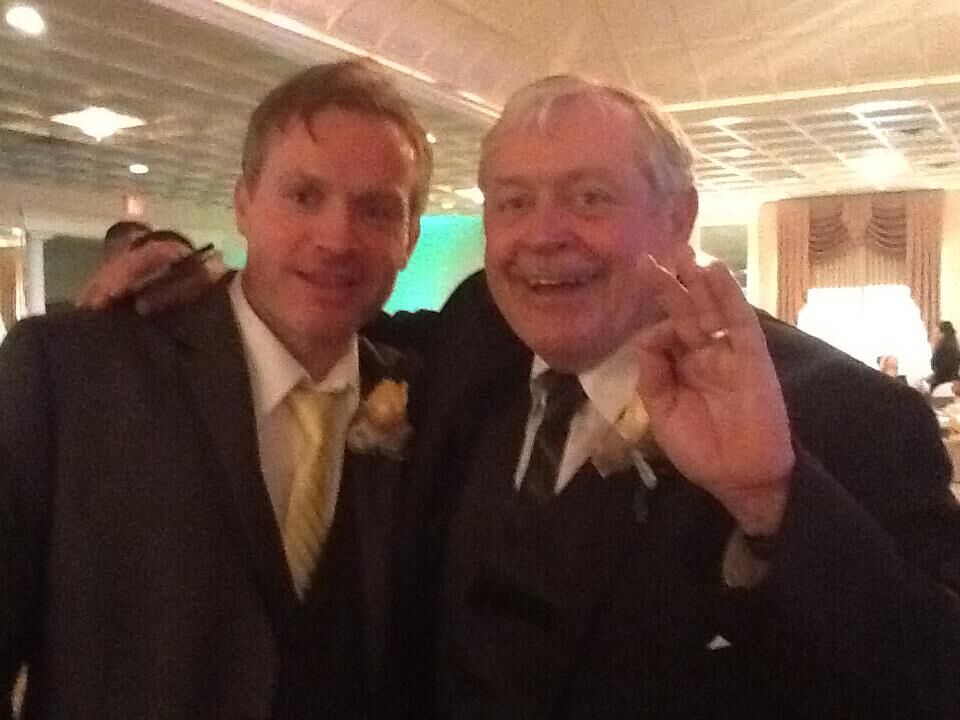 Pneumatic Transit
Pneumatic Transit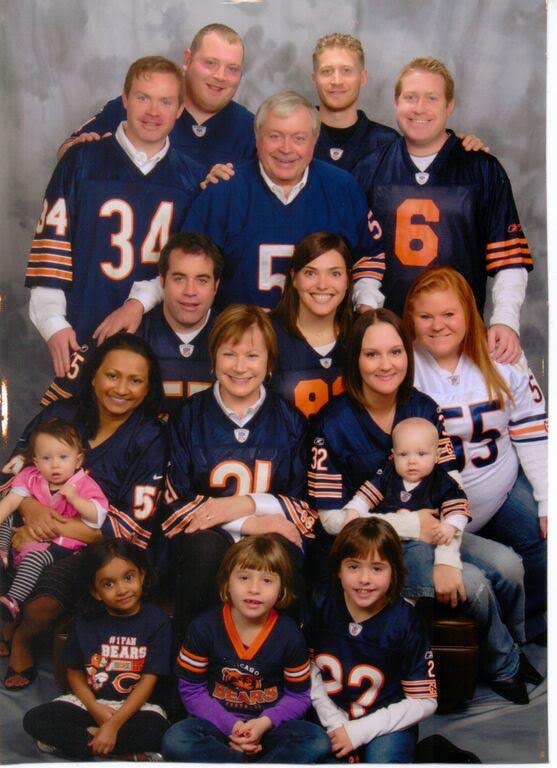 Perhaps you are thinking that you never knew Mike personally. Or maybe you are not a fan of Umphrey’s McGee so how does any of this apply to me? Chances are good that someone close to you is experiencing some level of depression or anxiety. You may have a child transitioning from adolescence to teen ager. Sometimes it is simply a tough time to start a new school or to meet new friends however many times it goes much deeper. Dr. Mirro points out to me the importance of observation and communication. “Remember that especially in the case of childhood bi polar episodes that the fear of being singled out by their peers may prevent the individual from seeking assistance.” It is up to us as parents and siblings to watch for signs and take action when needed. If a young person is hearing voices in their head that come and go with no sign of relief, the results can be devastating. Stay involved and talk to your children about tough issues. When a classmate loses their life, sit down and discuss why some people go down the wrong path. Help your child to recognize the signs and to be proactive. Better to reach out and risk embarrassment than to do nothing and have a lifetime of regret for not speaking up when they had the chance.
Perhaps you are thinking that you never knew Mike personally. Or maybe you are not a fan of Umphrey’s McGee so how does any of this apply to me? Chances are good that someone close to you is experiencing some level of depression or anxiety. You may have a child transitioning from adolescence to teen ager. Sometimes it is simply a tough time to start a new school or to meet new friends however many times it goes much deeper. Dr. Mirro points out to me the importance of observation and communication. “Remember that especially in the case of childhood bi polar episodes that the fear of being singled out by their peers may prevent the individual from seeking assistance.” It is up to us as parents and siblings to watch for signs and take action when needed. If a young person is hearing voices in their head that come and go with no sign of relief, the results can be devastating. Stay involved and talk to your children about tough issues. When a classmate loses their life, sit down and discuss why some people go down the wrong path. Help your child to recognize the signs and to be proactive. Better to reach out and risk embarrassment than to do nothing and have a lifetime of regret for not speaking up when they had the chance.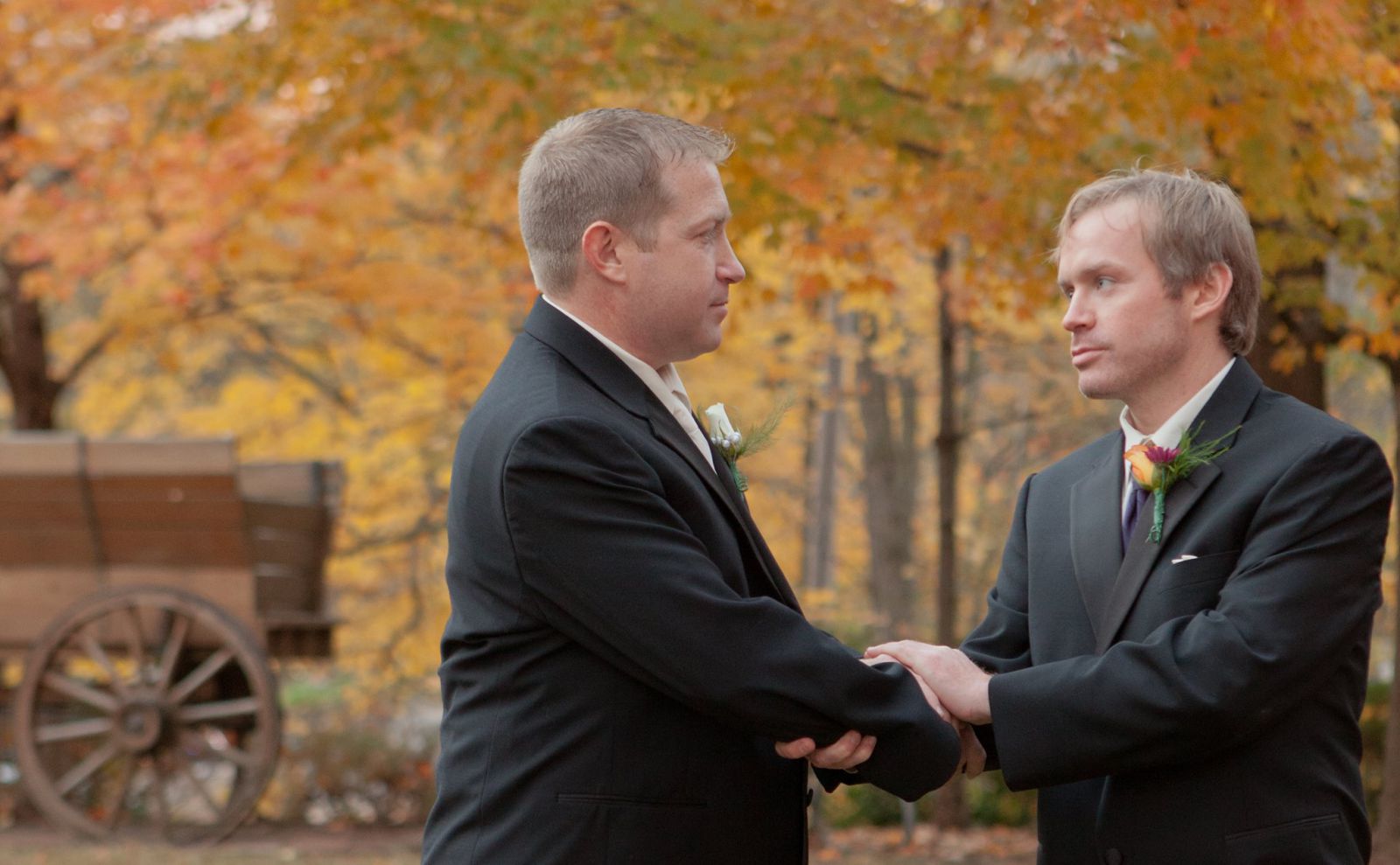 There can be a heavy burden carried by friends and family and it is common for parents and siblings to carry feelings of guilt for not “knowing” what was happening. I have learned that it does not have to be that way. Matt Mirro is lighting the way for his family and leading them from their darkest days. His pride in Mike’s achievements has all but erased any trace of guilt and his determination to share the music created by his brother serves as an inspiration to us all. His mantra is Strength and Honor, and he lives it every day.
There can be a heavy burden carried by friends and family and it is common for parents and siblings to carry feelings of guilt for not “knowing” what was happening. I have learned that it does not have to be that way. Matt Mirro is lighting the way for his family and leading them from their darkest days. His pride in Mike’s achievements has all but erased any trace of guilt and his determination to share the music created by his brother serves as an inspiration to us all. His mantra is Strength and Honor, and he lives it every day.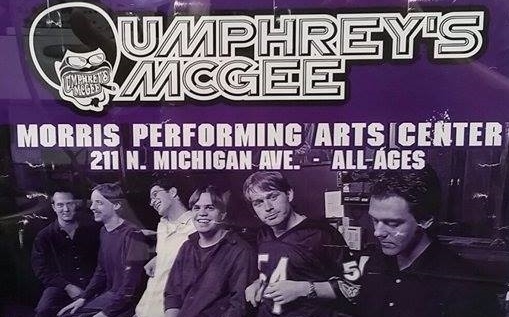 “Whenever I think of Mike, I think of the authentic approach he lent to the music of Umphrey's McGee. The trademark drum fills and queues he created in the songs are something that I try to continue playing, for the sake of celebrating his legacy. We shared the same influences, and it shows in his interpretation of how he composed and played the drum parts. I am proud to carry on his exuberance for both music and life, and his commitment to leading the importance of joyfulness with his bandmates while working together. He was true team player and had a heart of gold.” Kris Myers, the man who took over for Mikey when he went to medical school recalls respectfully.
“Whenever I think of Mike, I think of the authentic approach he lent to the music of Umphrey's McGee. The trademark drum fills and queues he created in the songs are something that I try to continue playing, for the sake of celebrating his legacy. We shared the same influences, and it shows in his interpretation of how he composed and played the drum parts. I am proud to carry on his exuberance for both music and life, and his commitment to leading the importance of joyfulness with his bandmates while working together. He was true team player and had a heart of gold.” Kris Myers, the man who took over for Mikey when he went to medical school recalls respectfully.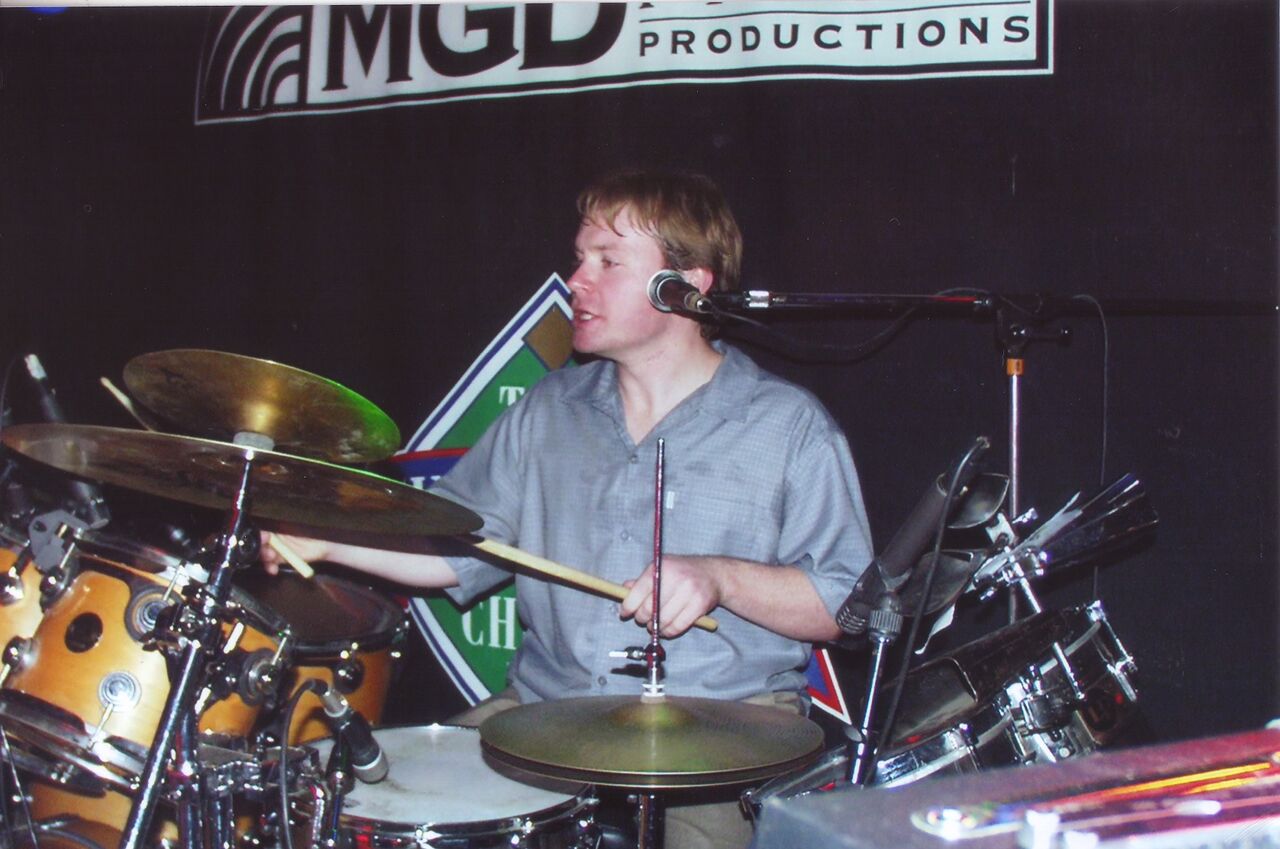 Andy Farag, percussionist and close friend to Mirro since high school adds some insight into keeping the spirit alive. “Each and every show we play I think of Mike. He and I created my go to rhythms while watching our many instructional videos and in a way I am now an extension of Mikey’s playing style. I am honored to do so. Most importantly, Mike is the main reason I became the percussionist I am today. For that, I am forever thankful.”
Andy Farag, percussionist and close friend to Mirro since high school adds some insight into keeping the spirit alive. “Each and every show we play I think of Mike. He and I created my go to rhythms while watching our many instructional videos and in a way I am now an extension of Mikey’s playing style. I am honored to do so. Most importantly, Mike is the main reason I became the percussionist I am today. For that, I am forever thankful.”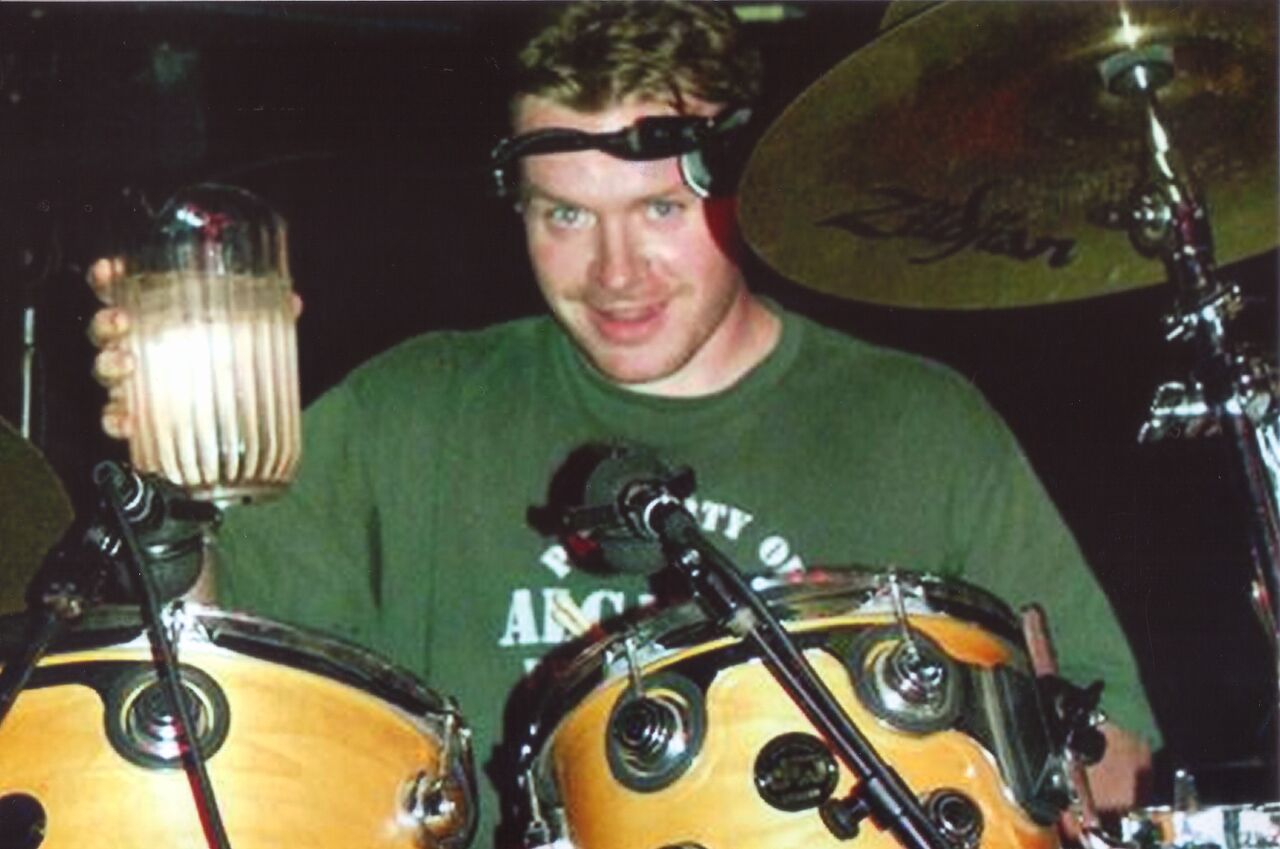
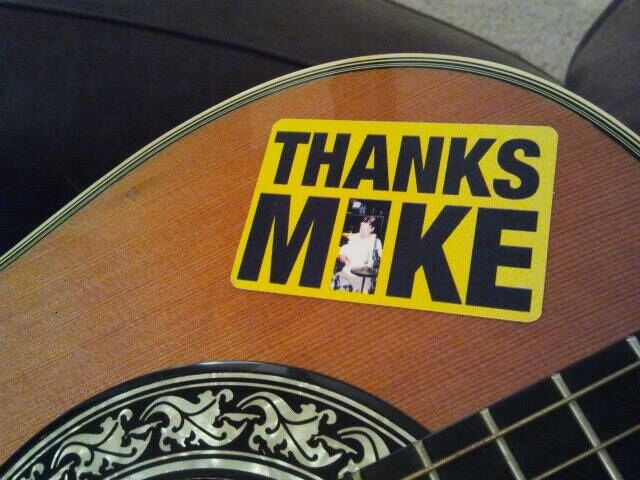 This past May, I spoke to Brendan backstage at Summer Camp. He said when the band is on stage, he feels like Mike is right there with him, cheering them on. He told me he planned to give Mike a shout out in the next set. I paid close attention throughout the show, and noticed he never actually spoke of Mikey on the microphone. Then it dawned on me, instead he did what Mirro always did. He let the music do the talking.
This past May, I spoke to Brendan backstage at Summer Camp. He said when the band is on stage, he feels like Mike is right there with him, cheering them on. He told me he planned to give Mike a shout out in the next set. I paid close attention throughout the show, and noticed he never actually spoke of Mikey on the microphone. Then it dawned on me, instead he did what Mirro always did. He let the music do the talking.
